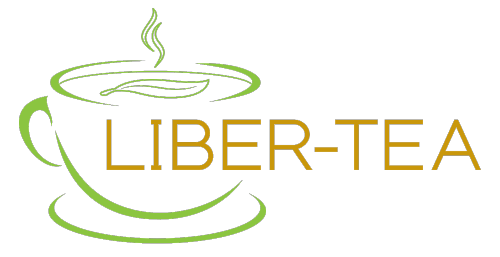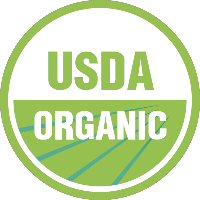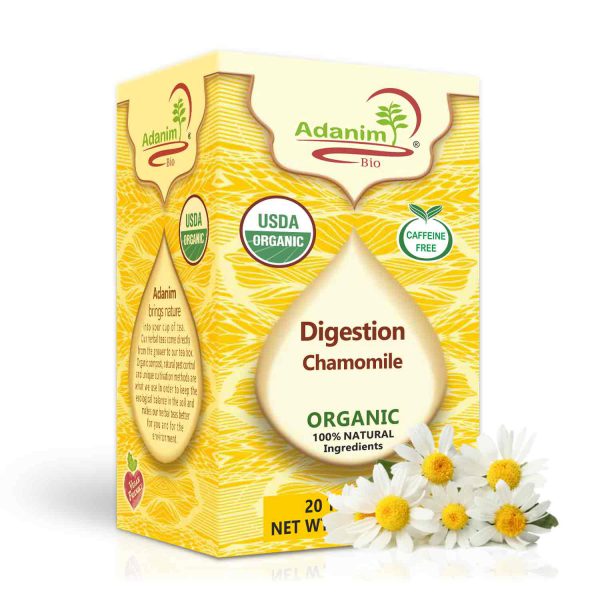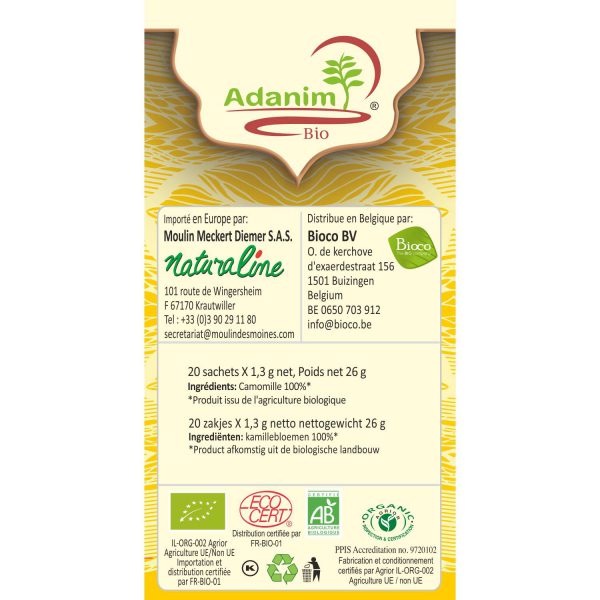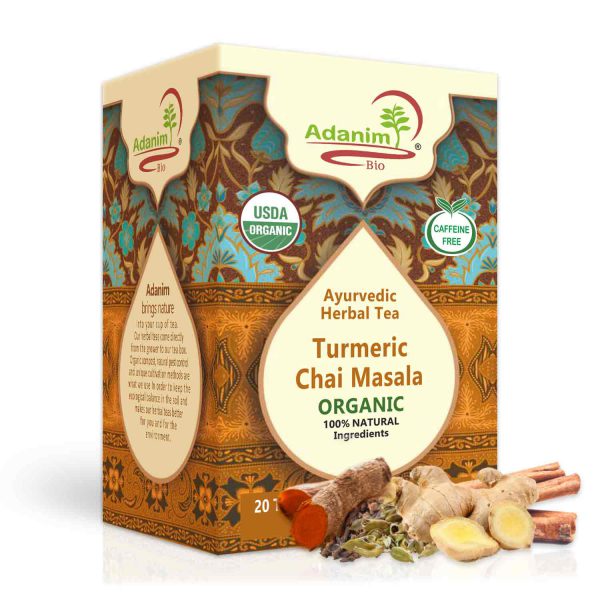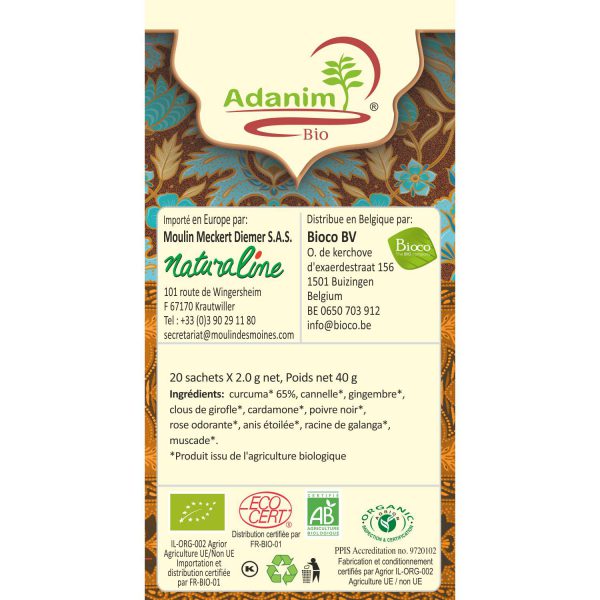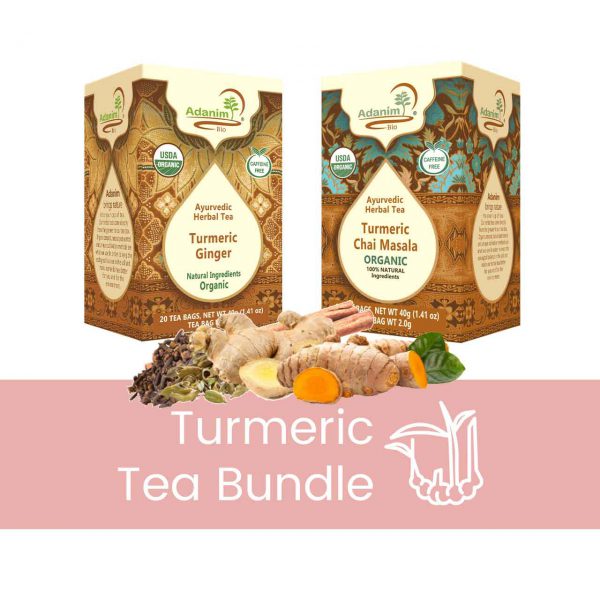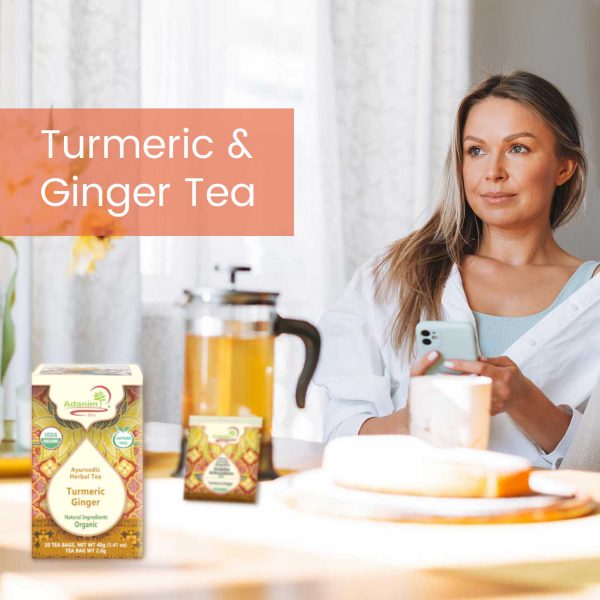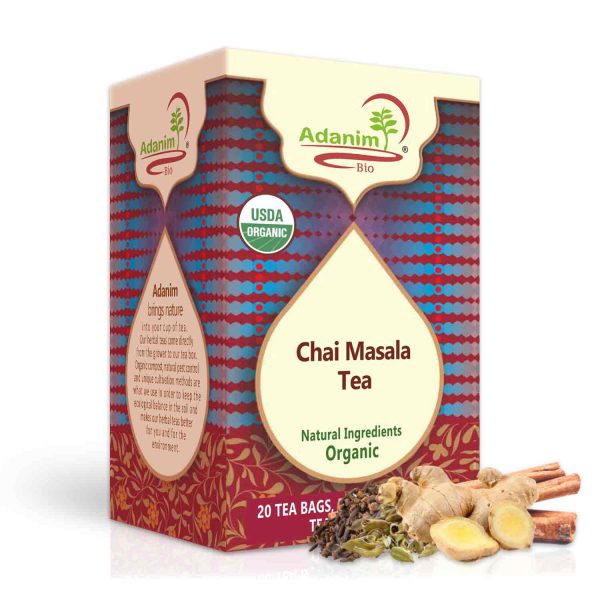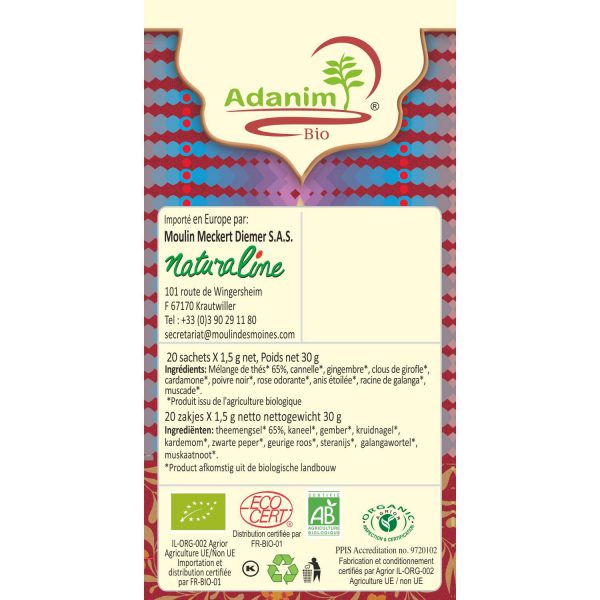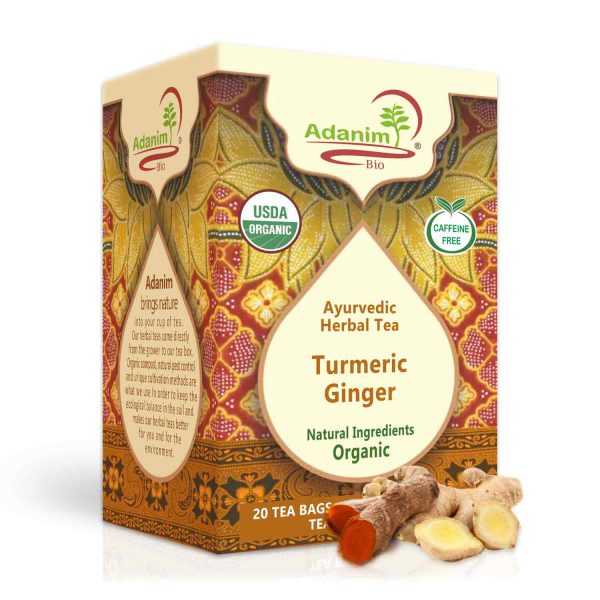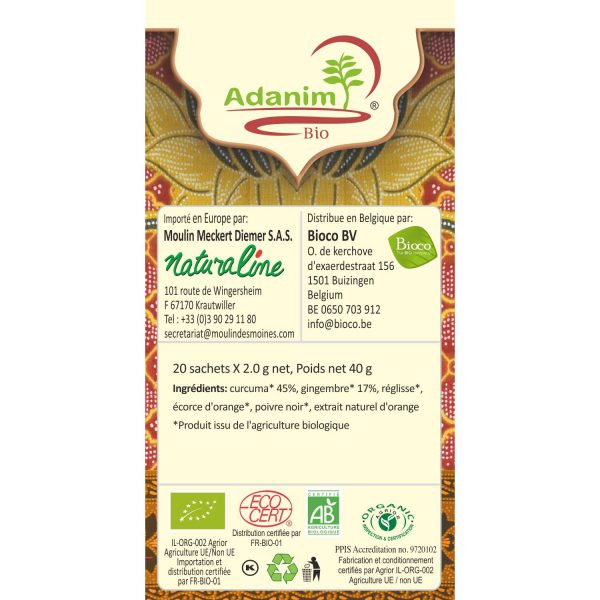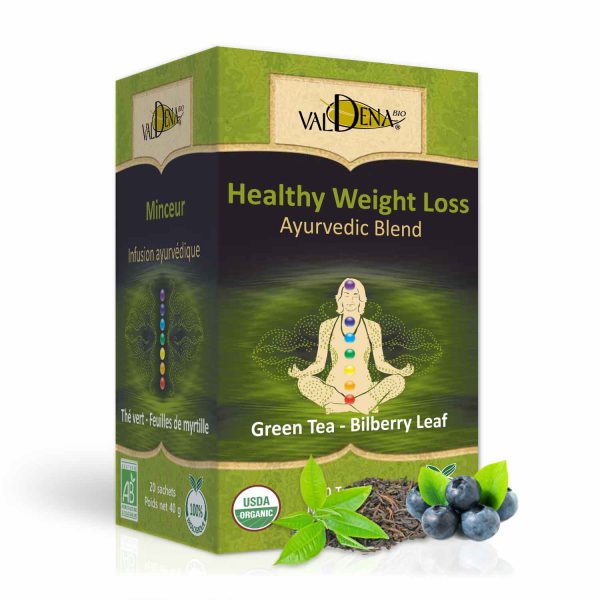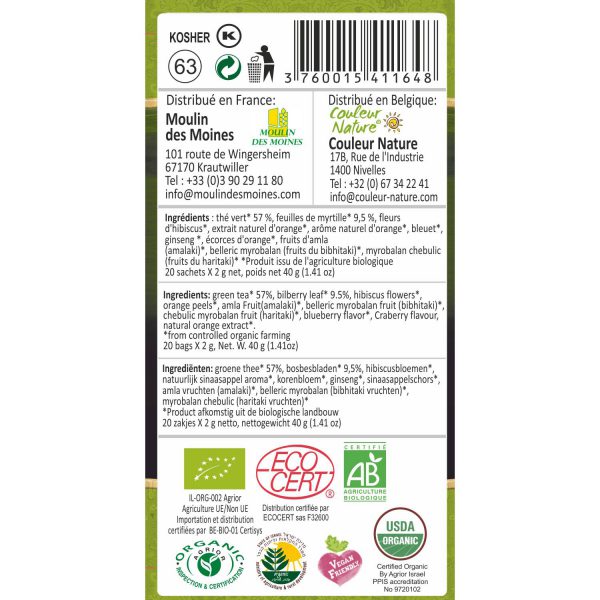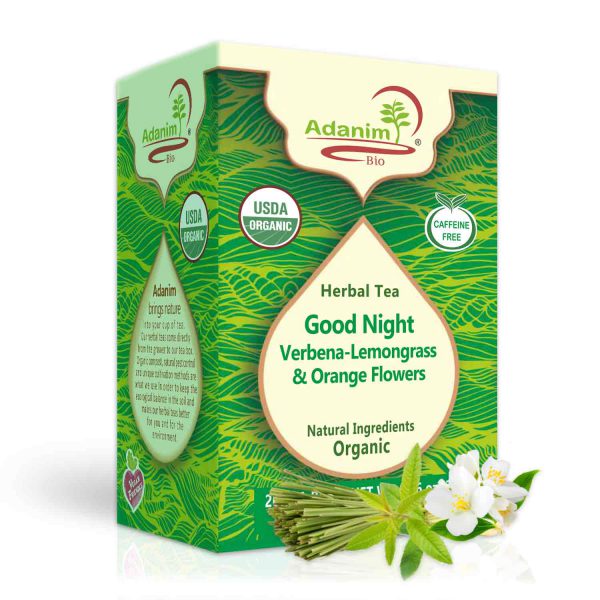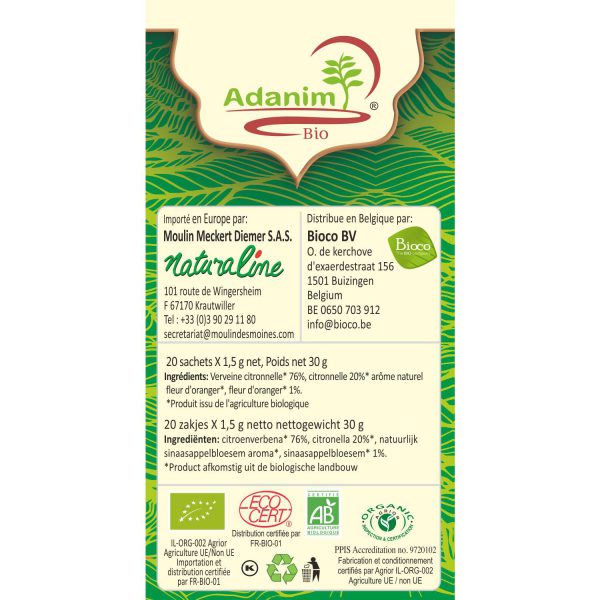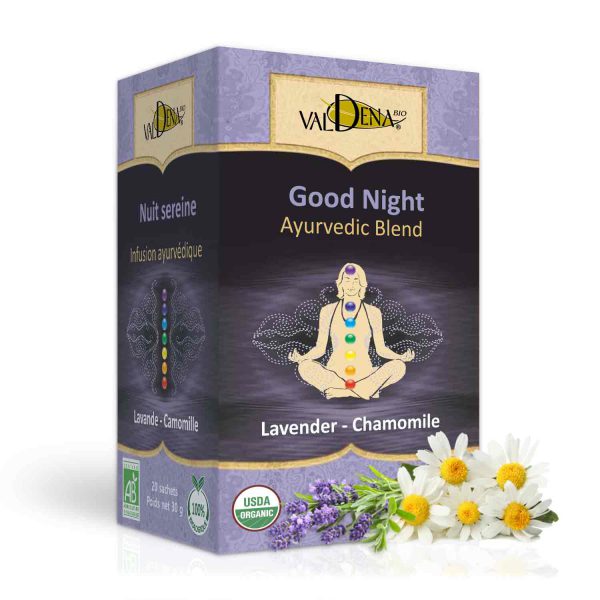Thyme Tea Bags with Health Benefits – for Lungs, Cough and Cold Relief (value 3 pack)
Price range: $5.38 through $14.51Chamomile Tea Providing Health Benefits for Bloating, Weight Loss, and Upset Stomach
Price range: $5.38 through $19.35Turmeric Chai Herbal Tea for Weight Loss
Price range: $5.38 through $19.35Organic Turmeric Tea Bundle
Original price was: $12.90.$11.61Current price is: $11.61.Organic Masala Chai Tea with Bombay herbal spice blend of Ginger Cardamom Cinnamon & Clove
Price range: $5.38 through $19.35Turmeric Ginger Ayurvedic Herbal Tea
Price range: $5.38 through $19.35Green Tea Helps in Weight Management – Organic Blend with Bilberry Leaf, Hibiscus & More
Price range: $6.57 through $17.75Organic Lemon Verbena, Lemongrass and Orange Flowers Infusion
Price range: $5.38 through $19.35Sleep Time Tea – Calming Tea for Relaxing and Deep Sleep, Based on Lavender and Chamomile Blend
Price range: $6.57 through $17.75We at Liber-tea extend a warm welcome to our valued customers to our dedicated category page for Tea for Inflammation!
Inflammation is a natural response of the body to injury or infection, but chronic inflammation can lead to a range of health problems. We offer a variety of tea blends specifically formulated to help reduce inflammation and promote overall health and wellness.
Our tea blends are crafted using only the highest quality, natural organic ingredients that have been proven to have anti-inflammatory properties. Our commitment to using only safe and healthy ingredients means that you can enjoy our teas without worrying about any harmful chemicals or additives.
Our teas are the perfect solution for anyone seeking a natural remedy to combat inflammation. We offer a diverse range of tea blends to suit various preferences and times of the day. From revitalizing morning blends to calming nighttime brews, our range of tea blends has something for everyone.
Our tea blends for inflammation include an array of premium ingredients such as:
Turmeric is a powerful anti-inflammatory spice that has been known for centuries in traditional medicine.
Ginger, which is well-known for its anti-inflammatory and antioxidant properties.
Chamomile, which is a calming herb that can help reduce inflammation and promote relaxation.
Green tea, which is packed with antioxidants and has anti-inflammatory effects.
Browse our selection of teas for inflammation blends today and experience the power of natural, organic remedies in promoting overall health and wellness!
Frequently Asked Questions about Tea for Inflammation
What is inflammation, and how does it relate to tea?
Inflammation is the body’s natural response to injury, infection, or irritation. Chronic inflammation has been linked to various health problems, including heart disease, diabetes, and cancer. Certain types of tea at Liber-tea, particularly those high in antioxidants, have been shown to help reduce inflammation in the body.
Which types of tea are best for reducing inflammation?
Green tea, chamomile tea, and black tea are all high in antioxidants and have been shown to have anti-inflammatory properties. Herbal teas like ginger and turmeric tea are also known for their anti-inflammatory benefits.
Can drinking tea really help with inflammation?
Yes, studies have shown that drinking tea can help reduce inflammation in the body. The anti-inflammatory properties of tea are thought to be due to the presence of antioxidants like catechins and flavonoids.
What are the active ingredients in tea that reduce inflammation?
Tea contains a variety of active organic ingredients that have anti-inflammatory properties, including catechins, flavonoids, and polyphenols. These antioxidants help to neutralize free radicals in the body that can cause inflammation.
How much tea should I drink to see an improvement in inflammation?
There is no one-size-fits-all answer to this question, as the amount of tea needed to see an improvement in inflammation may vary depending on the individual. However, studies have shown that consuming three to five cups of tea per day can provide significant anti-inflammatory benefits.
Are there any risks or side effects to drinking tea for inflammation?
While drinking tea is generally considered safe, excessive consumption can lead to caffeine-related side effects like anxiety, restlessness, and insomnia. Additionally, some people may be allergic to certain types of tea or experience gastrointestinal upset.
Can adding milk or sugar to tea reduce its anti-inflammatory benefits?
Adding milk or sugar to tea can diminish its anti-inflammatory benefits, as the added sugar can trigger an inflammatory response in the body. However, adding a small amount of honey or lemon to tea is generally considered safe and can even enhance its anti-inflammatory properties.
Can drinking tea alone reduce inflammation, or should it be combined with other lifestyle changes?
While drinking tea can be a helpful part of an overall anti-inflammatory diet and lifestyle, it is unlikely to be effective on its own. Other lifestyle changes that can help reduce inflammation include eating a diet rich in fruits and vegetables, exercising regularly, and managing stress.
Are there any specific types of tea that should be avoided for inflammation?
While there are no specific types of tea that should be avoided for inflammation, it is generally best to avoid teas that contain added sugar or artificial sweeteners. Additionally, some people may be sensitive to caffeine and should opt for caffeine-free herbal teas instead.
Can children and pregnant women drink tea for inflammation?
While tea is generally considered safe for children and pregnant women in moderation, it is best to consult with a healthcare provider before consuming tea for any specific health condition, including inflammation. Some types of tea, like green tea, can be high in caffeine and should be consumed in moderation by pregnant women and children.
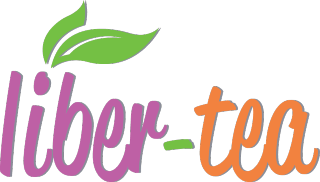
 Upset stomach
Upset stomach Body Health
Body Health Mental Health
Mental Health Night & Morning
Night & Morning